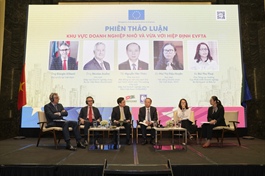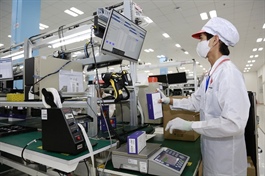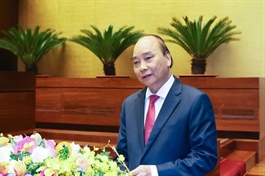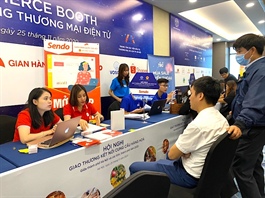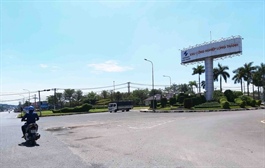Workers feel brunt of corporate issues
Workers feel brunt of corporate issues
Employees who believe they are being treated unfairly have been encouraged to seek advice regarding their rights as major foreign-invested companies and their workers feel the strain of pandemic-related woes over the past year.
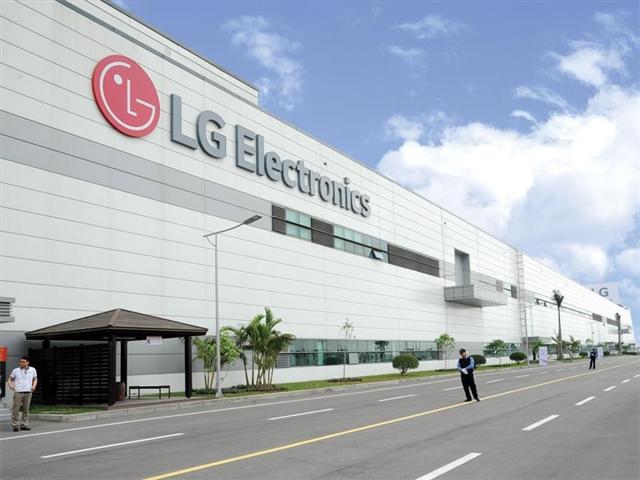
Workers feel brunt of corporate issues, illustration photo
|
VIR reported last week that several former employees of electronics giant LG in Vietnam accused the company of workplace mistreatment after allegedly having personal property seized and emails searched.
Asked for opinion on such disputes, Vu Quang Tho, former director of the Institute of Workers and Trade Unions (IWTU) under the Vietnam General Confederation of Labour, urged that some foreign-invested enterprises (FIEs) in particular may be violating human rights highlighted in numerous legal provisions in the country.
“In cases like these, employees should be protected and protest against such alleged behaviour,” said Tho. “If there are some misunderstandings or misconduct between employees and the company, the employer should carefully explain policies, new plans, and new cultural features of the company for employees to clearly understand their rights and responsibilities.”
The expert said that if these policies or solutions are not suitable with the local country’s legal rules and culture, as well as not agreed upon by the employees themselves, employers should change their plans instead of forcing them on workers.
Lawyer Lai Ngoc Thanh from LLA Legal noted that current legal provisions stipulates that employers can discipline employees for violations as noted in the law, or if they can otherwise prove a violation, along with the participation of the local trade union. “The relevant trade union should support the voice and protect the rights of employees in the case of any dispute,” he added.
According to the Labour Code and the Law on Trade Union, an internal employee department should protect the lawful rights and interests of the members in labour relations in the company; cooperate with the employer in resolving issues relevant to the rights, obligations, and interest of the employer and employees; and develop progressive, harmonious, and stable labour relations.
Nearly two weeks ago, a former LG employee in Vietnam, who is filing a lawsuit, alleged that he had his desk searched and items removed while he was on sick leave, apparently to investigate violations of company policy. He also accused colleagues of preventing him from leaving the building via an elevator.
The dispute arose after company documents sent to him said that he had used his annual leave without seeking permission. However, the worker said that he had submitted the three-week leave request to the company’s payroll app, along with submitting a medical certificate confirming that he was suffering from stress.
Reports of changes in work culture, along with the lingering pandemic effects, have caused a number of LG workers in several Vietnamese cities to quit after suffering from stress or depression, VIR was told.
A former head of marketing for the company revealed that she quit at the end of last year after accusing officials of searching her emails. A human resources lead also explained how she left the role in the middle of last year with similar complaints.
Bouts of stress may be coming into play as business failures, along with the impacts of the pandemic, have upended the various plans of LG and similar FIEs, especially when it comes to the hiring and firing of employees.
In South Korea, LG Group and Hynudai were the first two conglomerates to completely scrap mass hire processes last year, according to the Korea JoongAng Daily, while SK Group will scrap the traditional mass recruitment system from next year and adopt a rolling system where subsidiaries and teams hire new employees as and when required.
In a mass recruitment system, the group’s HR team would collect information from subsidiaries on how many new employees they would need each year and from which job segment. These massive recruitment drives usually take place twice a year.
The hiring practice has been the norm in South Korean conglomerates for decades as the country went through rapid economic development and companies needed an efficient way to fill their organisation with skilled workers.
However, South Korean companies in the 21st century began to deem the practice outdated and inadequate to adapt to rapidly changing markets. In the difficult economic context and the pandemic still lurking, the cumbersome system has been put under severe pressure.
In addition to tightening recruitment, numerous challenges in business have forced LG Group to think about closing its mobile phone business altogether after the failure of negotiations with Volkswagen AG and Vietnam’s Vingroup on a possible sale of the business.
LG Electronics’ CEO said in January that all options were on the table for the loss-making operation. The company was said to have halted development in February of phones with a rollable display, according to Bloomberg, said LG has also shelved a planned first-half rollout of all new smartphones. LG may share its decision on the business’ fate with employees as soon as early April.
Tho from the IWTU said that utilising financial issues to justify mistakes and violation is unacceptable in any company. “If the rights of employees are affected, they should gather to propose action by the employers,” he explained. “And foreign employers in Vietnam should strictly follow our legal provisions, instead of applying the methods they use in their own countries onto Vietnamese employees. Respecting the rights and interests of local employees is the only way for them to survive in Vietnam.”



